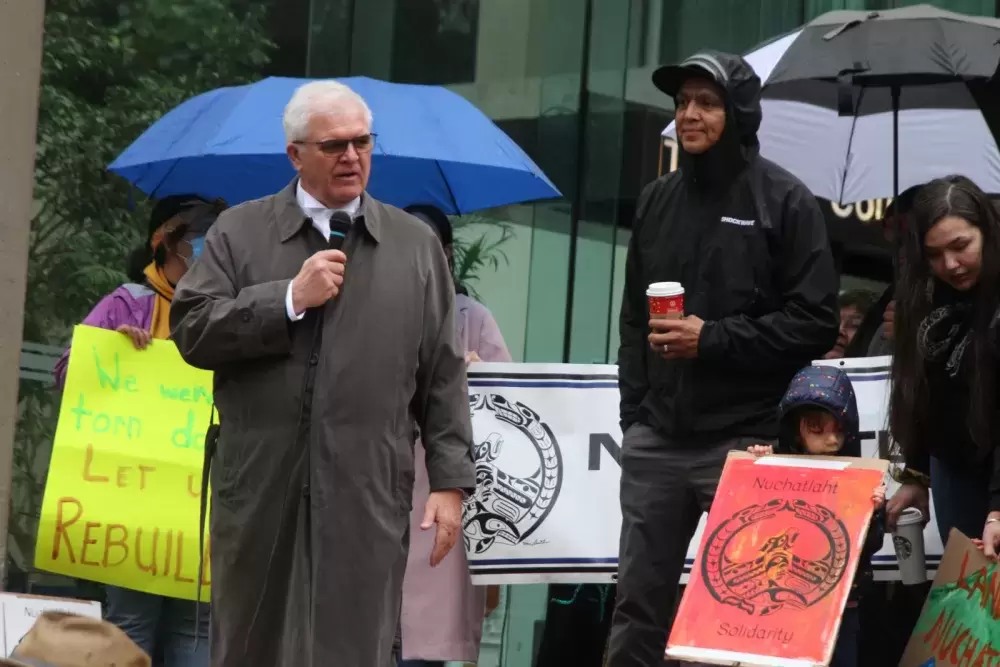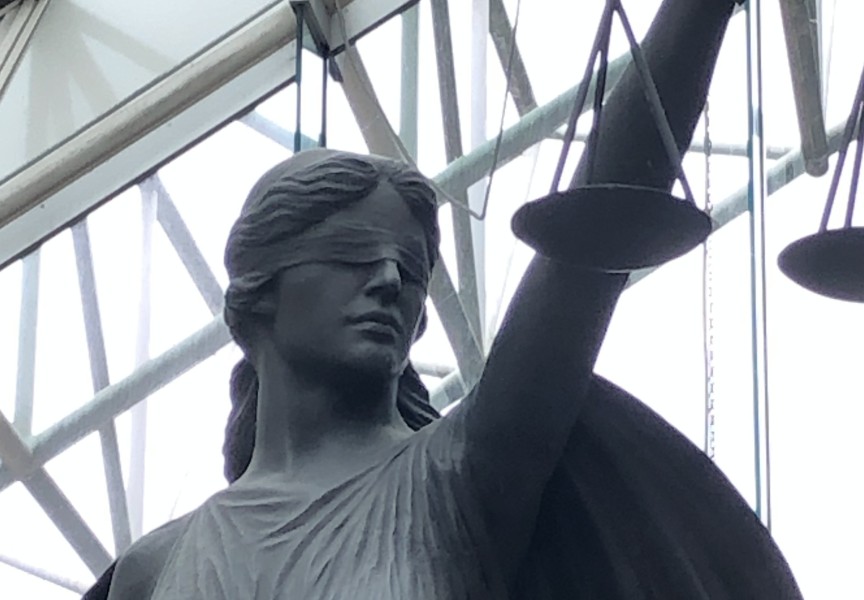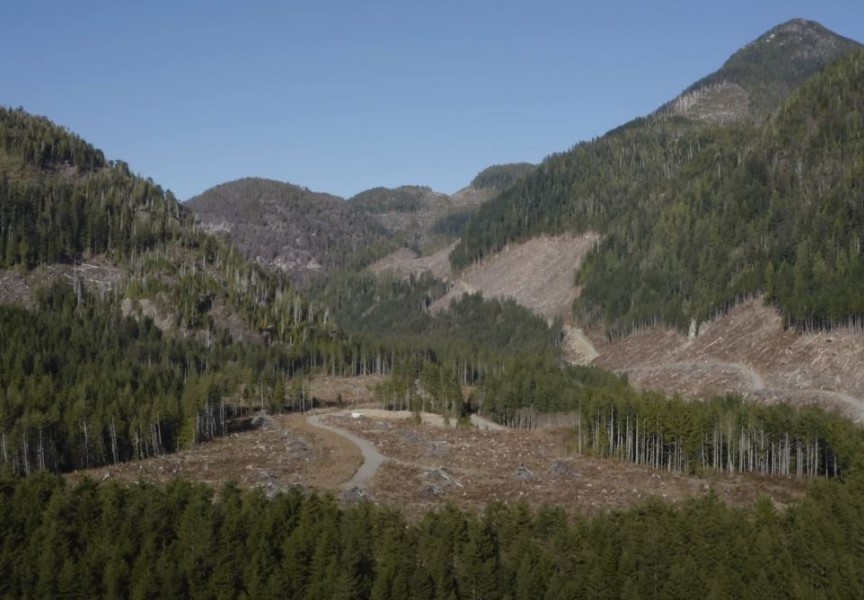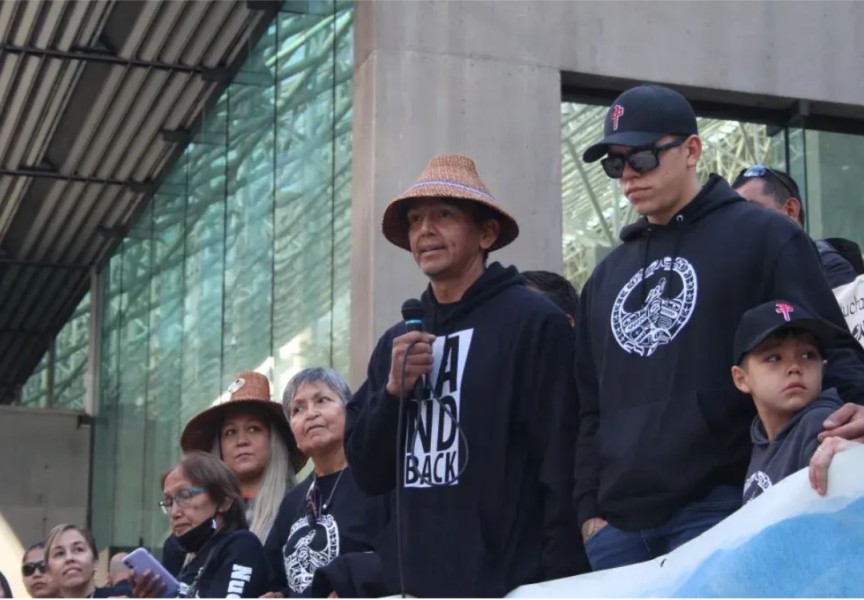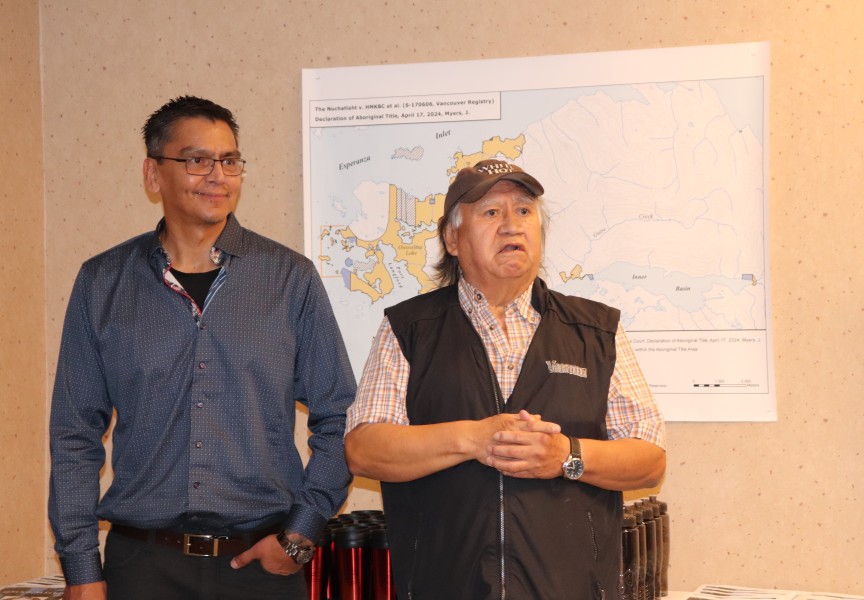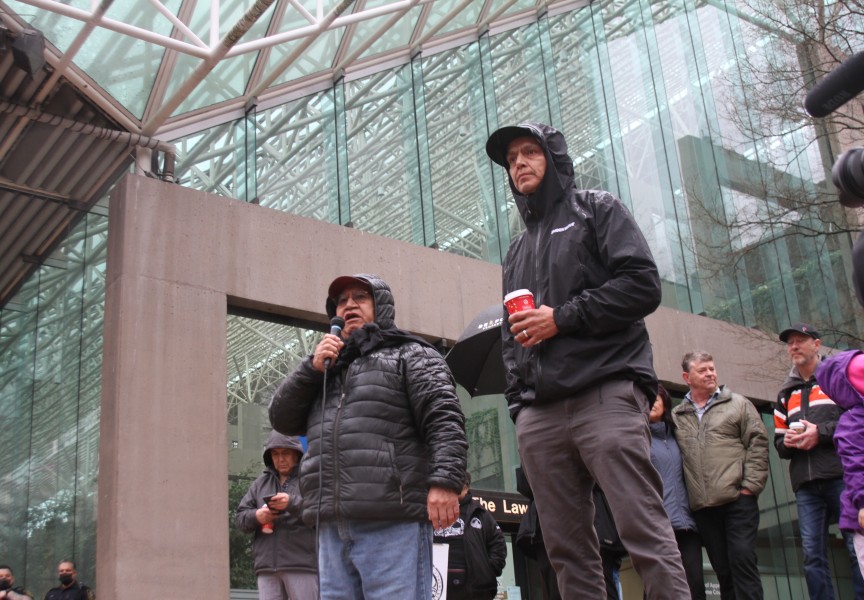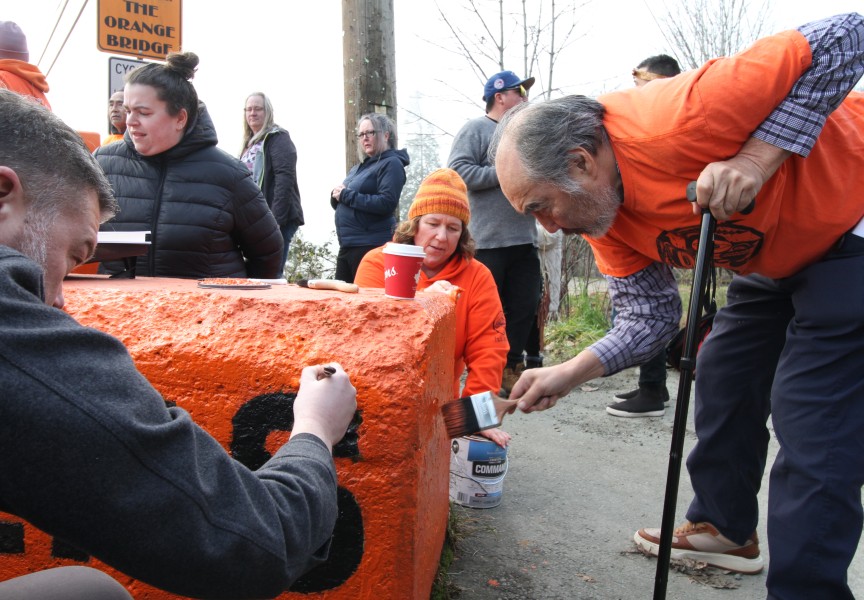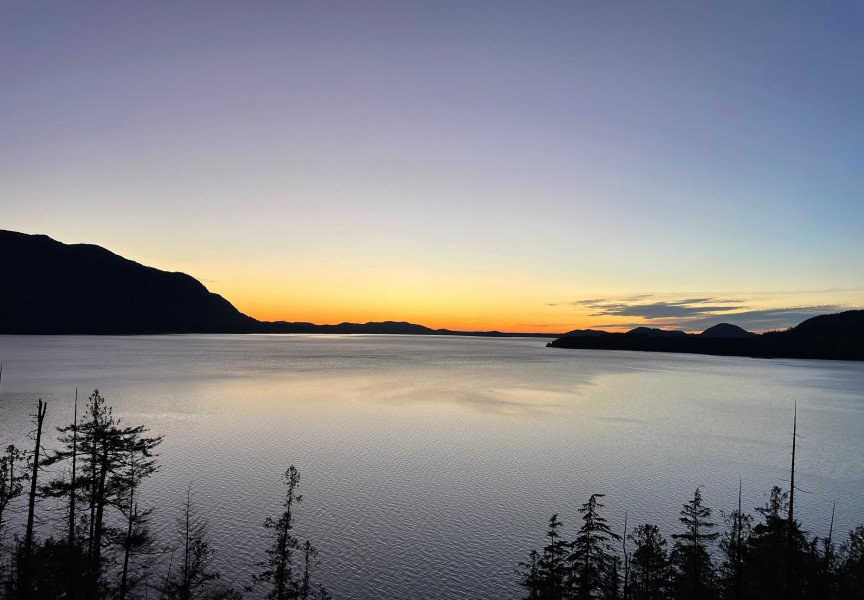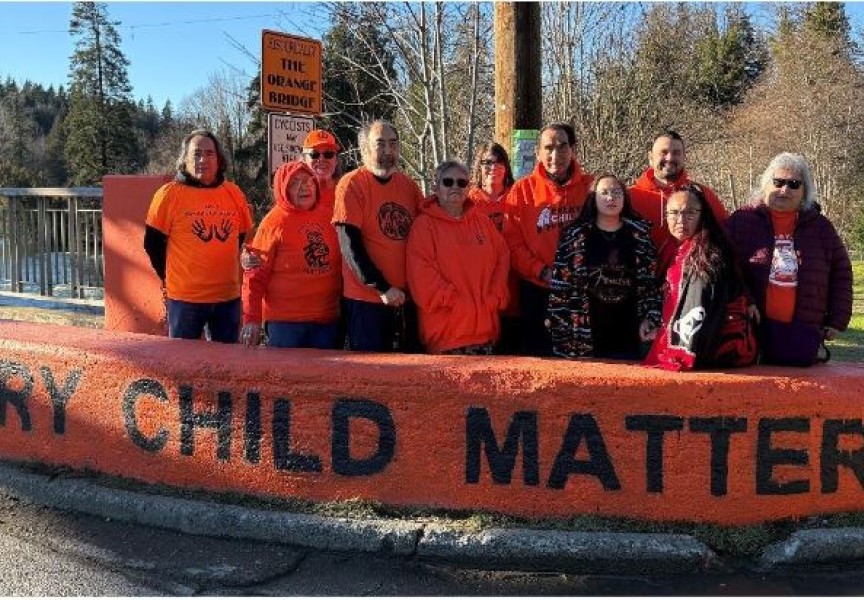The Nuchatlaht’s fight to gain Aboriginal title over the northern half of Nootka Island is expected to be in the B.C. Supreme Court for months.
But the trial doesn’t have to take that long if the court looks at the groundwork set out by the Tsilhqot’in Nation decision in 2014, says the Nuchatlaht’s legal team.
The First Nation’s trial began this week on March 21, where the Nuchatlaht will seek legal recognition of its territory on northern Nootka Island, west of Vancouver Island. Aboriginal title would grant the Nuchatlaht the right to use, enjoy and profit from the remote 20,000-hectare area.
The trial is destined to draw upon the precedent set by Tsilhqot’in, which was upheld by the Supreme Court of Canada in 2014. After a trial and lasted over 300 days – not to mention previous ruling by lower courts that were appealed – Canada’s highest court granted the “semi nomadic” group of First Nations title over 1,700 square kilometres in central B.C. This authority is not limited to former village locations, but can extend “beyond physically occupied sites, to surrounding lands over which a nation has effective control,” stated the 2014 ruling.
The Tsilhqot’in decision determined that Aboriginal title requires proof of a nation’s exclusivity in an area which they occupied before the British Crown asserted authority, as well as the historical continuity of living and using the claimed territory.
In his opening statement on March 21, the Nuchatlaht’s lawyer Jack Woodward said that the First Nation’s occupation of northern Nootka Island at the time of British sovereignty is indisputable. He described the Nuchatlaht confederacy that existed in the area at the time, a collection of at least half a dozen tribes with a governance structure in place.
“In 1846 the Nuchatlaht were in an organized society, occupying that land as their forefathers had before them for centuries,” said Woodward. “The Nuchatlaht were there when the Europeans first came, and they are still there.”
Woodward represented the Tsilhqot’in in their case, considered one of the longest and most expensive trials in B.C. history. But he sees the Nuchatlaht’s time in court unfolding more expediently.
“This case is vastly shorter and less complicated than Tsilhqot’in,” said Woodward. “This case isn’t about the facts; it’s about grappling with different legal concepts and doing justice for my clients.”
But in its opening statement for the court on March 22, the province disputed the Nuchatlaht’s continued occupation of northern Nootka Island. The provincial government’s lawyer Jeff Echols argued that the Nuchatlaht in 2022 are not necessarily the direct descendants of all the groups that occupied the area when Britain claimed sovereignty in 1846. He questioned if the modern-day Nuchatlaht should presumptively gain aboriginal title if different Indigenous groups occupied the claim area historically.
“The Nuchatlaht membership of today was drawn from a different base of Nuchatlaht membership historically,” said Echols. “You can’t say that the groups in 1846, or the date of sovereignty, were necessarily Nuchatlaht.”
The trial is destined to delve into different archaeological accounts, including some published in the mid 20th century that list multiple tribes who were believed to inhabit northern Nootka Island at one time.
To avoid future disputes, the trial’s claim area has a boundary that stays clear from territory of the neighbouring Mowachaht/Muchalaht and Ehattesaht First Nations.
But the province’s submission says that these overlaps were previously brought to the court by the Nuchatlaht in 2003 as part of the long-fought Ahousaht case, which determined the rights of five Nuu-chah-nulth nations to harvest and sell fish from their territorial waters. The province plans to bring up these past territorial overlaps during the Nuchatlaht trial.
“The Ahousaht proceeding is something we’re going to have to wrestle with,” said Echols.
Woodward believes this distracts the court from the larger issue at hand.
“British Columbia’s attempt to stir up the spectre of disputes with neighbours is mischief making,” he said during his opening statement.
Northern Nootka Island is recognized by the province as Crown land, with a tenure granted to Western Forest Products. The forestry company also gave an opening statement for the court on March 22, when Western’s lawyer Geoff Plant cautioned that if Aboriginal title is granted “there will be a world to understand and make sense of.”
“What do we do about the roads that are in the claim area,” he asked, noting that many will need to be decommissioned, as tree planting will also be necessary. “What about silviculure obligations?”
If a land ownership transition is granted, Plant questioned how the complicated regime in place to protect forestry resources would be replaced by unregulated private ownership.
“The public interest should not be ignored,” he said. “Let’s face it, we’re all here to stay.”

